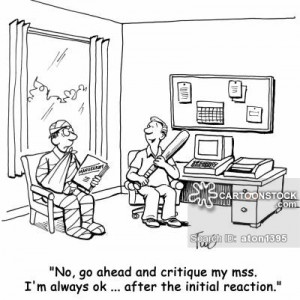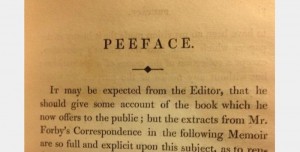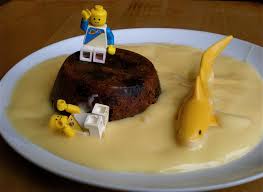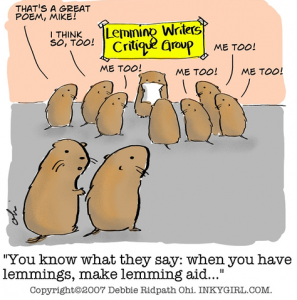We know it hurts, you’ve put love and time into this manuscript and now people are going to come along and start picking fault, before it even gets to the reading public! We feel your pain and we recommend a tub of ice cream, a weepy movie and that you suck it up cupcake, you need to put your book through this process before it goes into the cruel cruel world!
Ok let’s start by clearing this up. Beta readers, proof readers and editors are not the same things. Which is not to say the same people can’t be all of those at various points, but when you ask someone to review your manuscript you need to know what you are asking for and who you are asking.

Beta readers. These are often friends, hopefully ones not afraid to criticise you, or other writers doing a beta swap. The job of a beta reader is to come back with ‘so yeah were you going for a mash up of Noddy and Austen? Coz that’s what this feels like. Also Brad is a massive douche bag oooh and this bit makes no sense, did I miss it or is it a gaping plot hole?’ That’s all really. They are there for the every day reader, looking for things that throw them out of the story, or mess it up totally, the plot holes the inconsistent characters, the overall tone. They are not there to edit your writing, correct your grammar (if they have a good eye and pick up tense slips and typos bonus). They are there to feed back to you what your baby looks like to the rest of the world.
Editors are there to make you look better. A good editor will not only pick up on mistakes in spelling and grammar, plot holes and inconsistencies but they will guide you. You can expect notes telling you that your whole first chapter is exposition, you don’t need it, bin the lot. An editor will tell you that you’ve used the same phrase 638 times in 400 pages and that’s at least 600 times too many, you’ll get notes to move this paragraph and cut that one, rewrite a section entirely, drop Brad not only is he a douche but he serves no actual purpose, cut him out entirely. A good editor will tell you that the book will be even better if it’s 100 pages shorter and that if you are setting it in medieval England you can’t have people saying ‘whassup brominator’. A good editor won’t rewrite you, put things into their words or make any changes for you, but they will steer and discuss and help you make the book tighter and better before it goes into the world. Beta readers are the mirror held up to your baby, Editors will show you how to photoshop it before you submit it for the local cutest baby contest.
Proof readers on the other hand will just give your baby a thorough scrub and iron its best onesie. The job of a proofer is simple, but requires a sharp eye and patience. They find mistakes. Spelling mistakes, typos, they tell you when your two should be too or your their belongs there. Proofers are the last line of defence against the fact that spellcheck doesn’t know you meant knackered not naked (seriously my brother wrote he was always nakerd and I was worried till someone pointed out the ‘r’)or that toad is a perfectly acceptable word, although toad works in the highway seem unlikely (I sent a lot of documents out with toad works in my time).
Be clear when you send your MS off. You can expect to pay a decent rate for a good line edit, likewise a decent proofer, it’s normal enough for beta reading to be trading favours or begged from friends. That does mean though that if they don’t work to your timetable or get back to you at all, or they take it upon themselves to rename your characters, I’m afraid that is what comes of trading favours sometimes. Shrug it off and use someone else next time. If you are paying then you can expect the service you are paying for so be clear on what you want, find out the rates and see if this is someone you feel good about working with, if it’s up to you who edits your book (which it won’t be if you are with a publisher) then it’s a relationship, work out if this is someone you can work well with.
If you are issued with an editor, you may get lucky, you may not, but however frustrating you find them, be respectful, it’s a small industry. If it really isn’t workable talk to whoever is handling your book and see if they can switch you out to someone else, but be a grown up about it, you may hate the process but you need editing, you need proofing and it’s smart to get a beta if you can.
As an aside on beta readers. Don’t have too many, it’s tempting to get everyone you know who reads to go over the book but you’ll get so many opinions it can be overload. Ideally find two or three people who like the sort of fiction you are trying to write to read it and see if it hits the target audience.
So to summarise, you need beta readers when you finish your MS if you can get them. Then for heaven’s sake get it edited and proofed before you send it anywhere, to self pub or to query and agent. Give your baby its best chance. Give it a detached look over, clean it up, then wipe the snot off before you send it into the world. (Wow I’ve really squeezed everything I can from that analogy).
And check out #tentweetsabouteditors for some neat notes by @joannechocolat on the subject.




